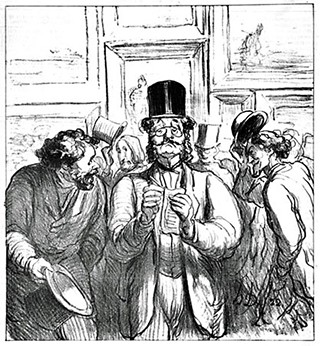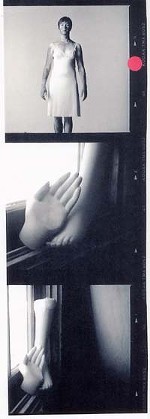All Over Creation: Re: Views
What makes a review a review?
By Robert Faires, Fri., Jan. 20, 2012
What's in a name? That which we call "review" by any other name would smell as ....
Well, let's not go there.
But let's do circle around the question of what makes a review a review, because it's been on my mind ever since the Chronicle ran a review for the play Men of Tortuga back in December. In it, writer Adam Roberts heaped accolades on Street Corner Arts, which staged the show, for the polished quality of what was its first production. Playwright, director, and actors were all name-checked and their respective skills praised – the program got a shout-out even – but no characters were mentioned, no plot was detailed, and no onstage action described.
Which prompted this remark in our online comments section: "And the play? These 494 words tell us almost nothing about Men of Tortuga other than the fact that Adam Roberts liked it." For commenter Michael Meigs, who runs the invaluable Austin Live Theatre website, the absence of any commentary on the production itself – the narrative, the characters, their portrayal by the actors, the flow of the action, or the drama, which is, after all, what people came to the theatre to see – made it less than satisfying as a review and perhaps less than useful, too. It clearly wasn't the review that Meigs wanted, but does that mean that it wasn't a review?
I'd argue that it was in that the writer offered a personal response to the show he'd seen. Re-viewing his experience (how easy it is to let slip that the act of looking back is the core of this process), what made the biggest impression on Adam was not really the story or how it was told but the way all the diverse elements of the show came together so beautifully for a first-time production. Given the number of new theatre companies that crop up locally every year (usually a dozen), most of them somewhat rough around the edges, a deft debut is newsworthy. So he wrote about that.
That sort of focus on the architecture of the production isn't what most of us are accustomed in a review. We've been weaned on consumer directives – Go!/Don't go! – and shorthand evaluations – thumbs up or down, letter grades, stars (I'm lookin' at you, Chronicle film reviews!) – with judgments rendered on a standard series of production components (script, direction, performances, design, et al.), so that's largely what we've come to expect from reviews. But such re-views provide only a limited view of the artwork that was seen. With, say, a play, they ignore the inspiration for the script, its intent, the reason it was chosen for production, the histories of the producing company and the artists involved, what they're trying to say with the play, and what meaning it may have for our community at this moment in time. All those aspects contribute to why a show is what it is and are worth talking about. Bringing any of them into a discussion of a production in a review expands the reader's sense of that artistic endeavor.
As Elizabeth Cobbe wrote when I invited Chronicle Arts writers to weigh in on the topic: "Certainly there is a consumer-reporting aspect to what we do, but at their best, reviews should themselves be enjoyable to read and worthwhile contributions to a publication. One could write a book report or assign a letter grade, but is that really participating in the larger conversation about arts in the community? What does it take to get a review to that level?"
Jonelle Seitz believes that it takes a lot of work: "A critic has to constantly make decisions about which of his or her experiences might have value to the reader – for example, by providing a context – that warrants taking space away from describing the work itself."
But describing the work isn't necessarily the most important function of the review, Arts Listings Editor Wayne Alan Brenner argues, because it isn't always what the reader wants: "Sometimes, y'know ... a reader – myself, frequently – prefers a general impression. Because he or she doesn't want to be told what the play is about, specifically, or what goes on in it, specifically; because spoilers aren't just spoilers of Weird Plot Twists like in Sixth Sense or The Crying Game; because spoilers are sometimes just having Too Much Goddamned Basic Information That One Would Rather Have Experienced Afresh For Oneself. Of course, if a reviewer is to avoid such a sort of spoiler, if a reviewer is going to give a worthwhile impression, that reviewer had better well do a decent and somehow informative job of it."
The thing is, there are probably as many different ideas of what readers want from reviews as there are readers. So why not make room for them all? The book report and the superlative-laden rave, the subtextual analysis and the historical/political perspective, and the review about the background of the production company. Let's have them all (well, except for the ones with spoilers) in order to place works of art in the largest context possible. That's when our re-views give us full views.












